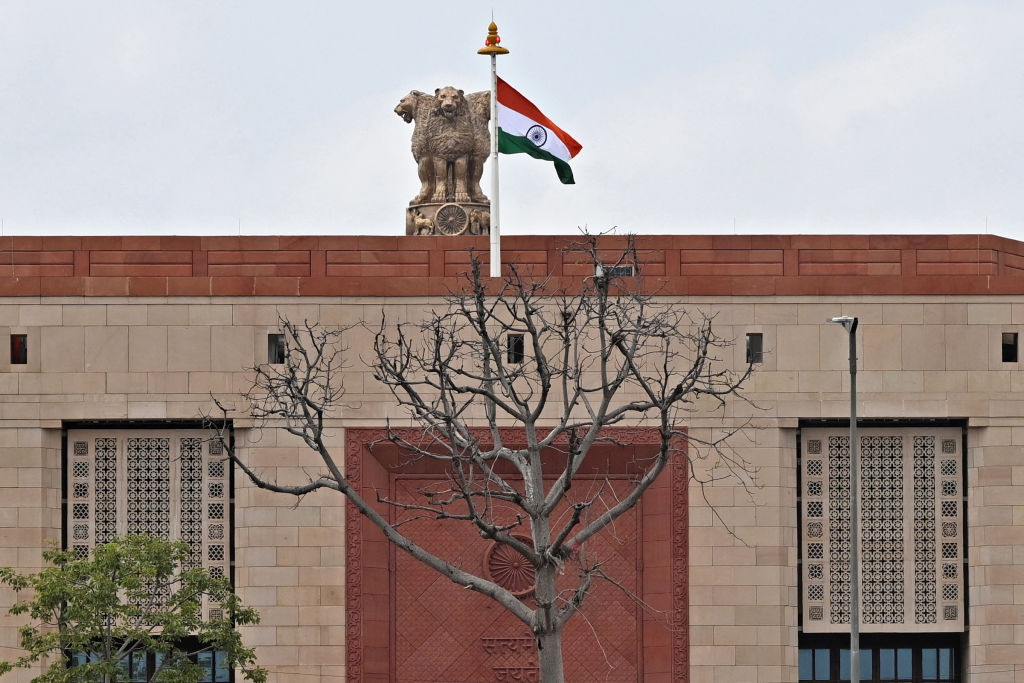- Thursday, April 03, 2025
Some of the Hindu nationalist party’s key allies in the National Democratic Alliance, whose support is important for PM Modi’s government to survive, have expressed interest in the prized post.

By: Shubham Ghosh
TUESDAY (18) marked completion of two weeks since the results of India’s general elections came out. The new government led by prime minister Narendra Modi was formed on June 9 and administrative work has resumed.
However, one major decision is still pending and it is about the speaker of the Lok Sabha or the Lower House of the Indian parliament. The post is a key one in parliamentary democracy since the speaker serves as the controller of the House and its proceedings.
With Modi’s Bharatiya Janata Party (BJP) failing to get a majority on its own in this year’s elections, other parties in the National Democratic Alliance (NDA) have expressed interest in getting the post, which has resulted in negotiations. The BJP, which had a majority on its own in the 2014 and 2019 elections, had no problem in picking speakers from its own party — Sumitra Mahajan between 2014 and 2019 and Om Birla between 2019 and 2024.
Read: Is 1999 behind Modi’s hesitation to give TDP Speaker’s post?
India’s NDTV broadcaster reported citing sources that talks over who would get the post would take place at the residence of defence minister Rajnath Singh in New Delhi on Tuesday (18) evening. Top ministers and representatives of the BJP’s allies will be present at the meeting.
The Telugu Desam Party (TDP), which finished as the second-largest party in the NDA in this year’s election after the BJP with 16 seats, has expressed interest in getting the post. The BJP finished with 241 seats in this year’s election, falling 31 short of the majority mark of 272 and is dependent on allies such as the TDP and Janata Dal – United (JD-U) to form the majority and the government. The JD-U, which is the ruling party of the eastern state of Bihar, is also reportedly keen to get the speaker’s post. Its chief Nitish Kumar, however, said last week that it would back the BJP’s choice.
Read: Coalition era returns in Indian politics: Can Modi do a Vajpayee?
Experts feel interests shown by both TDP and JD-U are attributed to the speaker’s “absolute power in deciding cases pertaining to disqualification on ground of defection” — which is useful to have in dealing with a possible mutiny.
The BJP, too, has hesitation in giving the chair to any of its allies. Perhaps the sour experience it had in 1999 when the then speaker’s decision to allow a member of parliament who had already taken over as the chief minister of a state (Odisha) to vote in a no-confidence motion, causing the NDA government of Atal Bihari Vajpayee to collapse narrowly, is a reason behind.
There is also a possibility of the BJP naming key leaders from the states of Andhra Pradesh and Odisha, where the party and its allies tasted success this year (BJP formed its first ever government in Odisha), such as D Purandeshwari and Bhatruhari Mahtab, as a ‘thank you’ gesture to the party’s state units.
As of now, the opposition Indian National Congress’s K Suresh, the longest-serving MP in the Lok Sabha, has been picked as the interim, or Pro Tem Speaker. The parliamentarian from the southern state of Kerala will next week administer the oath to the new members and then adjourn the House till the new speaker is appointed/elected.
A Lok Sabha Speaker is elected by a simple majority of MPs voting.
Additionally, there could also be a face-off over who would become the deputy speaker. The post has been lying vacant since 2019. In 2014, the BJP had named M Thambidurai, a leader of former ally All India Anna Dravida Munnetra Kazhagam, as the deputy speaker and he continued for five years.
For Modi’s BJP, the decision will not be an easy one to take. The opposition, stronger than Modi’s last two terms, are creating pressure on the NDA over the choice of the speaker, hoping to trigger rifts within the ruling alliance.